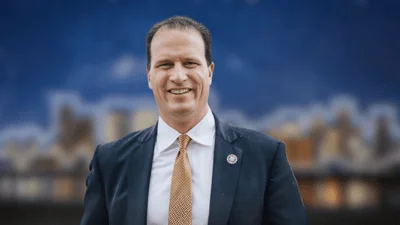The Congressional Record is a unique source of public documentation. It started in 1873, documenting nearly all the major and minor policies being discussed and debated.
“FEDERAL TRANSPORTATION FUNDS” mentioning the U.S. Dept. of Transportation was published in the Extensions of Remarks section on pages E1512-E1513 on July 18, 2003.
The publication is reproduced in full below:
FEDERAL TRANSPORTATION FUNDS
______
HON. CAROLYN C. KILPATRICK
of michigan
in the house of representatives
Thursday, July 17, 2003
Ms. KILPATRICK. Mr. Speaker, taxpayers have given the U.S. Congress the authority to allocate their hard-earned money to build and repair highways, bridges, mass transit systems and transportation projects of all kinds. In keeping with our Nation's traditions, this program is largely funded by the Federal Government but conducted by the States.
However, there lacks sufficient oversight tools to monitor how Federal transportation money is being spent at the State and local levels. More than 80 percent of comparative studies have found that contracting-out engineering, design and inspection costs of transportation projects cost more than doing this work in-house. The taxpayers could have saved some money and gotten a similar quality if state and local engineers handled the projects.
Furthermore, skilled and dedicated professionals have been leaving State and local governments for private sector, not only because salaries are higher and career opportunities are greater, but it is also because transportation departments have been reducing their staffs, holding down their pay and contracting-out the most interesting work.
Now that the ``baby boom'' generation of engineers is preparing to retire, State and local transportation departments need to take action to retain existing engineering and technical employees and to recruit skilled and dedicated professionals to take the place of those who are leaving.
Because of the oversight deficiency and an intention to keep professional engineers with the State and local transportation departments, I would like to introduce H.R. 1980, The Safety, Accountability, and Funding Efficiency for Transportation Act of 2003, to encourage State and local agencies that carry out surface transportation projects to conduct a cost-benefit analysis before procuring architectural, engineering and related services from a private contractor.
By conducting the cost-benefit analysis, a State's and the Federal Government agency will be able to determine if using private contractors is cost effective and if it is in the public interest to use a private contractor or in-house resources when procuring such services.
My constituents through National Association of State Highway and Transportation Unions, the AFL-CIO's Department of Professional Employees, AFSCME, Service Employees International Union and the Communications Workers of America, have shown their support for H.R. 1980, Safety, Accountability, and Funding Efficiency for Transportation Act of 2003.
The heart of this bill is to require government agencies to prepare cost benefit analysis for private contracts with a Federal funding value of $100,000 or more. The analyses must contain the cost comparison of a proposed project if it is done by a private contractor and a government agency.
In my opinion, it is now time to put accountability in utilizing the taxpayers' hard-earned money at State and local levels, especially in spending Federal transportation funds.
____________________








